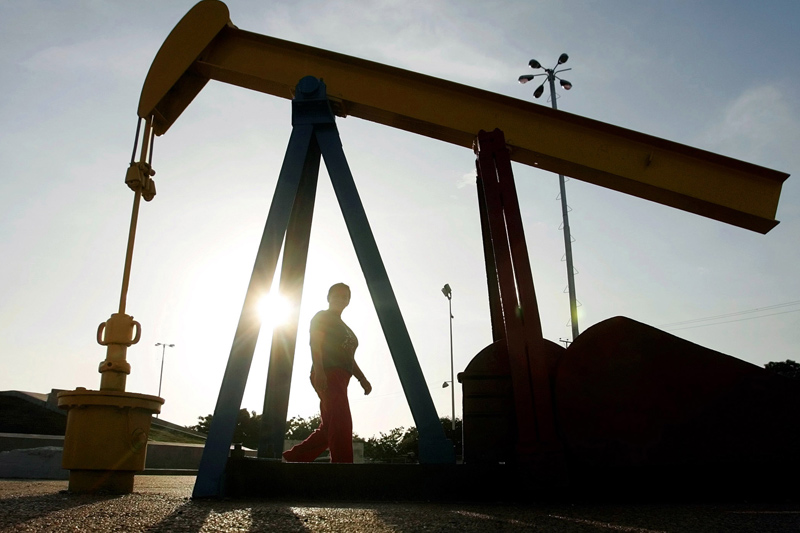(Bloomberg) -- Oil rose for the first time in 11 sessions on the possibility that OPEC and its allies will cut output next year and after Saudi Arabia said it will reduce sales in December.
While futures in New York climbed as much as 1.3 percent on Monday, they are still down about 20 percent from a 2014-high reached early last month. Top OPEC member Saudi Arabia said exports will be curbed by 500,000 barrels a day in December, and a committee of the Organization of Petroleum Exporting Countries and its partners warned over the weekend that it might need “new strategies,” raising the prospect of a wider cut in 2019.
The Saudis are taking the lead to counter a price rout, which has put pressure on OPEC and its allies including Russia to cut output as signs of a supply glut emerge in the U.S. -- which is pumping at a record. Oil collapsed into a bear market as fears of a crunch eased after America granted waivers for some nations to continue buying Iranian crude even after the Trump administration hit the Middle East nation with sanctions.
Prices are gaining on rising expectations that OPEC producers including Saudi Arabia and allies will discuss and decide measures at their next meeting in December, said Takayuki Nogami, chief economist at Japan Oil, Gas and Metals National Corp. in Tokyo. “A big factor is that Iran’s supply isn’t falling as much as expected at a time when other countries are pumping more. A risk of a supply glut is rising.”
West Texas Intermediate for December delivery rose as much as 78 cents to $60.97 a barrel on the New York Mercantile Exchange and traded at $60.81 at 9:38 a.m. in Tokyo. Prices slumped 0.8 percent to $60.19 on Friday. Total volume traded was about 200 percent above the 100-day average. A measure of oil market volatility jumped to the highest level since late 2016 at the end of last week.
Brent futures for January settlement added 86 cents to $71.04 a barrel on the London-based ICE (NYSE:ICE) Futures Europe exchange. The contract fell 47 cents to $$70.18 on Friday, the lowest close since April 9. The global benchmark crude traded at a $10.14 premium to WTI for the same month.
Softer Demand
Demand for Saudi oil is “tapering off” in part because of seasonal factors, so the kingdom will ship less, Energy Minister Khalid Al-Falih told reporters on Sunday in Abu Dhabi, where the committee that oversees the 2016 agreement between OPEC and its allies to manage supply met.
Saudi Arabia may also struggle to convince other producers to follow its lead. Iraq has successfully boosted production to a record, and its more fragile economy may make it loathe to reverse course. Russian Energy Minister Alexander Novak showed no sign he was ready to act immediately, and said the market should be balanced by the middle of next year, though there are forecasts for a surplus of 1 million to 1.4 million barrels a day, he said.
